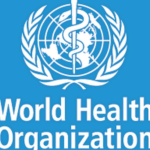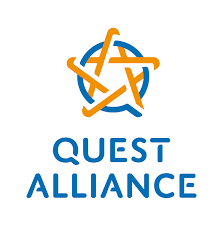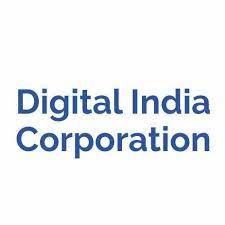
Website WHO
OBJECTIVES OF THE PROGRAMME
The WHO Country Office for India collaborates with the Government of India and relevant stakeholders within the framework of the collaborative Country Cooperation Strategy (CCS), to actively support the development, implementation and evaluation of interventions aiming at reducing the burden of NCDs and co-morbidities, including mental health and substance abuse, through strengthening public policies and health systems. Mental health conditions often experience severe human rights violations, discrimination, and stigma along with disproportionately higher rates of disability and mortality. Mental disorders share common features with other chronic communicable and non-communicable diseases, including heart disease, stroke, diabetes, and HIV/AIDS. They share many underlying causes and overarching consequences and are highly interdependent; thus, calling for an integrated approach to their prevention and management. The need of mental health promotion and wellbeing is also extremely important during COVID-19 like health emergencies which led to increase in the prevalence of anxiety, depression and other mental health disorders. Principles for an integrated response to mental disorders and other chronic diseases in health systems involves a public health approach that includes a focus on disease prevention and health promotion over the life course, as well as the provision of accessible, comprehensive, and coordinated services to those with identified needs. A systems approach involving good governance, appropriate resourcing, and timely information, as well as the actual delivery of health services or technologies is also key. A whole-of government, multisectoral approach is required to tackle the health, social, and economic consequences of mental disorders and other chronic diseases which the health sector cannot handle in isolation. The country office contributes to (i) prevent and reduce disease, disability and prematuremorbidity and mortality resulting from mental and psychosocial disorders; (ii) reducing substance abuse and underlying social determinants of mental illness, by supporting development of strategies and interventions to create health-promoting environments, accordance to SDG-3 and National Mental Health Policy, 2014; (iii) strengthening and orienting health systems to address the prevention, early detection and appropriate management of mental illnesses and neurological disorders, through people-centered primary health care and universal health coverage; (iv) ensuring policy coherence and implementation synergies with ongoing initiatives of the national and subnational governments, including the implementation of the mental health, neurological and substance use (MNS) disorders package at the Health and Wellness Centres under Ayushman Bharat; (v) facilitating legislation, regulatory frameworks and other cost effective measures to reduce alcohol and substance abuse. In this context, the WHO country office for India will continue to provide the necessary technical support to the Government of India for translation of the National Mental Health Policy into action plan at state level as appropriate.
Underlying Values and Core Functions of WHO
WHO’s mandate revolves around six (6) leadership priorities specifying (i) advancing universal health coverage; (ii) health related sustainable development goals; (iii) addressing the challenge ofnon-communicable diseases and mental health, violence and injuries and disabilities; (iv) implementing the provisions of the International Health Regulations (2005); (v) increasing access to quality, safe, efficacious andaffordable medical products; (vi) addressing the social, economic and environmental determinants of health. The South-East Asia Region (SEAR) of WHO is made up of 11 countries, with over 1.9 billion people, with India’s population of 1.3 billion. All the Member States of WHO/SEAR (Bangladesh, India, Bhutan, Myanmar, Sri Lanka, Nepal, Indonesia, Maldives, Timor-Leste, Democratic People’s Republic of Korea, Thailand) share the common value of the highest attainable standard of health as a fundamental human right. All of WHO actions are based on this and rooted in the underlying values of equity, solidarity and participation. The mission of WHO India is to improve quality of life of the 1.3 billion people in India by supporting the government in eliminating vaccine preventable and other communicable diseases, reducing maternal and neonatal mortalities, promoting healthy lifestyles, addressing determinants of health, preparing and responding to health emergencies and strengthening health systems for universal health coverage.
DESCRIPTION OF DUTIES
Under the overall guidance of the Deputy Head of WHO Country Office India and the direct supervision of Team Leader (NCD), with a view to achieve the expected results set out in the relevant WCO-India biennial work plans in accordance with WHO’s Country Cooperation Strategy with India (2019-2023), as part of the WCO-India team working on NCDs and comorbidities, the incumbent will have the following responsibilities:
1. Provide advice and technical support to the GOI for implementation of the national mental health policy, 2014. Promote multi-sectoral and whole of government approaches to address the human rights protection, discrimination, stigma and underlying socio-economic determinants of mental and psychosocial disorders.
2. Collaborate with state, national authorities and other stakeholders to identify mental and psychosocial health priorities, develop and/or help roll out relevant plans and interventions in the areas of mental health, neurological and substance use (MNS) disorders at various healthcare levels. Contribute to the preparation of relevant advocacy tools, policy briefs, guidelines and training materials.
3. Provide advice and technical support to the GOI for strengthening and orienting health systems to address the prevention, early detection and appropriate management of mental illnesses, neurological disorders and substance use disorders as integral part of primary health care and universal health coverage.
4 . Enhance convergence and integration of mental health programs and service delivery across NCDs, Communicable Diseases (TB, HIV, Leprosy) and Maternal and Child Health (MCH) services.
5. Provide technical assistance for adapting UN and WHO resolutions in the country context. Assist in aligning national and subnational priorities in line with Comprehensive mental health action plan 2013-2030, Mental Health Gap Action Programme (mhGAP) and other WHO guidelines.
6. Facilitate implementation of population-based and individual levels cost effective interventions ‘best buys’ to reduce the burden of alcohol, psychoactive substances uses and other substance abuse.
7. Contribute to the training and capacity-building in area of MNS disorder and service delivery during emergencies.
8. Work with international and national partners towards improving the surveillance, monitoring and evaluation of interventions on substance abuse, mental health and neurological disorders. Compile and review national data or reports related to the surveillance of substance abuse, mental illnesses and neurological disorders.
9. Collaborate with research institutions and relevant partners to assess the mental health needs and to assess treatment gap for mental, neurological and substance use disorders. Facilitate studies to identify burden of substance abuse, mental illness and neurological disorders, and making appropriate recommendations.
10. Ensure timely preparation of correspondence, technical briefs and backgrounds, reports, WR briefs, presentations, and other material related to the assigned areas of work.
11. Support information brokering/exchange of WCO India through contributions to the health repository at the WCO India by collation, analysis and sharing of relevant information and statistics.
12. Undertake any other tasks/duties as assigned by supervisors.
REQUIRED QUALIFICATIONS
Education
Essential: University degree in health, public health, mental health, social sciences, or a related field from a recognized university.
Desirable: Diploma or masters degree in Public Health or in mental health or psychiatry.
Experience
Essential: At least 5 years of experience in the relevant field with experience in project management and programme evaluation.
Desirable: Experience of work in UN and/or other international organizations in development of advocacy materials and in organizing training activities.
Skills
- The incumbent should identify with the core values of the World Health Organization.
- Thorough knowledge of policies, strategies and guidelines in the area of NCDs, road safety and injury prevention, with good understanding of country’s needs and priorities.
- Good knowledge of ways to work with government institutions and related departments/agencies and experience of work in an international environment.
- Sound technical and policy advisory skills, based on evidence.
- Ability to coordinate, plan and implement projects, organize training activities, effectively monitor and analyse data and make oral and written presentations.
- Very good ability to build and maintain relations and network with national authorities and other stakeholders across relevant sectors.
- Understanding of the potential motivating factors within national context and ability to adjust to new approaches in an increasingly complex environment.Modern management skills (planning and evaluation, etc).
- Capacity to convey information and options in a structured and credible way; ability to speak and write clearly.
- Proficiency in computer applications and ability to draft reports.
- Knowledge of WHO /UN agencies programmes and practices will be an advantage.
WHO Competencies
- Teamwork
- Respecting and promoting individual and cultural differences
- Communication
- Building and promoting partnerships across the organization and beyond
- Producing result
Use of Language Skills
Essential: Expert knowledge of English. Expert knowledge of Hindi.
Desirable: Good command of other UN and/or local languages
REMUNERATION
Remuneration comprises an annual base salary starting at INR 3,454,746 (subject to mandatory deductions for pension contributions and health insurance, as applicable) and 30 days of annual leave.
ADDITIONAL INFORMATION
- This vacancy notice may be used to fill other similar positions at the same grade level.
- Only candidates under serious consideration will be contacted.
- A written test may be used as a form of screening.
- In the event that your candidature is retained for an interview, you will be required to provide, in advance, a scanned copy of the degree(s)/diploma(s)/certificate(s) required for this position. WHO only considers higher educational qualifications obtained from an institution accredited/recognized in the World Higher Education Database (WHED), a list updated by the
- International Association of Universities (IAU)/United Nations Educational, Scientific and Cultural Organization (UNESCO). The list can be accessed through the link: http://www.whed.net/. Some professional certificates may not appear in the WHED and will require individual review.
- Any appointment/extension of appointment is subject to WHO Staff Regulations, Staff Rules and Manual.
To apply for this job please visit careers.who.int.





